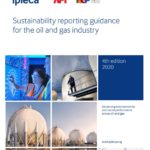(by William Baue, SocialFunds.com)
The Operating and Financial Review (OFR), the UK Department of Trade & Industry (DTI) regulation that came into force in March 2005 mandating annual corporate disclosure of non-financial environmental, social, and governance (ESG) information, was shot dead last week. In a speech before the Confederation of British Industry (CBI–the voice of business interests in the UK), Chancellor of the Exchequer Gordon Brown pulled the trigger, citing concern over "goldplating"–or blind adoption of European Union regulations.
"Best practice is of course for companies to report on social and environmental strategies relevant to their business," said Mr. Brown in the speech. "But I understand the concerns about the extra administrative cost of the goldplated regulatory requirement that from April next year all quoted companies must publish an operating and financial review."
"So we will abolish this requirement and reduce the burdens placed upon you–the first of a series of regulatory requirements which by working together we can abolish in the interests of the British economy," he added.
The move came as a surprise as the creation of the OFR, which dates back before 2002, resulted from a comprehensive consultation process coordinated by a working group assembled by DTI representing a broad spectrum of affected parties, including socially responsible investment (SRI) practitioners.
"Put simply, we think this was an over-reaction," said Raj Thamotheram, a senior advisor for responsible investment at Universities Superannuation Scheme (USS), the UK’s third largest pension fund. "The OFR was developed in the UK to fit UK investor needs and based on what UK companies were able to do to meet the legitimate expectations of shareholders and other stakeholders, so the debate about ‘goldplating’ is interesting but doesn’t seem to USS to be so relevant."
"There was also a particular concern about the absence of a safe harbour provision–in other words protection for directors who make forward-looking statements in good faith which then turn out to be incorrect," Dr. Thamotheram’s colleague David Russell, an advisor for responsible investment at USS, told SocialFunds.com. "We and other investors have sympathy with this and it could have been addressed without trying get rid of the baby with the bath water!"
Cost-related concerns may also be more of a red-herring than an insurmountable problem, according to Olivia Lankester, a senior analyst for governance and socially responsible investment at F&C Asset Management.
"We believe cost issues were over-stated–this and other significant concerns were addressed following the consultation stage," Ms. Lankester told SocialFunds.com.
Indeed, while considerable consultation went into the creation of the OFR, it seems precious little went into its scuttling. Today, environmentalist organization Friends of the Earth (FoE) in the UK sent a letter to Mr. Brown claiming his decision was "procedurally unfair, irrational, perverse, a breach of legitimate expectation, and based upon material errors of fact." FoE’s letter claims that the Chancellor’s failure to consult before making the decision was in breach of the UK government’s Code of Practice on Consultation.
"We have written to Mr. Brown today to warn him that unless he can satisfy us that his decision was lawfully made we intend to seek a judicial review," said FoE legal advisor Phil Michaels. "The decision was a breach of fundamental public law principles of fairness and due process."
It remains unclear what will unfold in the sudden absence of OFRs.
"Many UK companies, particularly FTSE 100s, already produce OFRs on a voluntary basis and are likely to continue to do so, irrespective of the government turn-around," said Ms. Lankester of F&C. "However, the turn-around will undoubtedly slow the take-up of OFRs amongst other companies."
There are several possible courses of action the UK government may take to fill the demand for extra-financial information that was addressed by the OFR.
"It’s important to remember that the OFR did not require the types of reporting that is suggested by 5-star sustainability reporting, like the Global Reporting Initiative for example," said Mr. Russell of USS. "The OFR was very specific in its linking of extra financial issues to business strategy and risk management rather than free-standing environmental social, ethical and governance information–this information may still be needed and useful to stakeholders and SRI fund managers."
"The debate will now shift to the mechanism through which this should now happen–in other words, should it be part of the Combined Code (which is a soft form of regulation operating on a ‘comply or explain’ approach), the Enhanced Business Review of the EU Accounting Management Directive (which is regulation), or should we just continue to ask for the ‘old’ OFR," Mr. Russell added. "So when things settle down, I think people will see that the corporate trade bodies have over-played their hand and haven’t done their members any real favours–the same need will be there, the same challenges will remain, and the same pragmatic solutions will have to be found."



